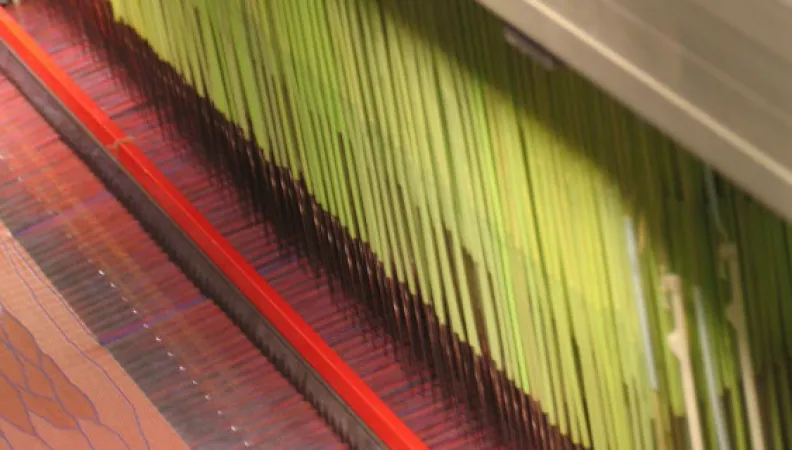Share the page
Dolidol: a showcase for “Made in Morocco”
Published on
Jalil Skali Chief Executive Officer Dolidol

Private Sector & Development #34 - Embracing the challenges of sustainable industrial development
Essential to economic development, the industrial sector is also a source of controversy (environmental impact, creation of decent jobs, etc.). The 34th issue of Private Sector & Development is dedicated to the questions raised by this sector as we are embracing sustainable development.
The CEO of Dolidol tells us about how attached Moroccans are to a traditional product, the Moroccan lounge (comprising L-shaped or U-shaped sprung sofas), and to a local brand, especially in these times of crisis. While “Made in Morocco” is clearly a success factor in its own right, the company will be facing major economic challenges over the next decade. It intends to address them by strengthening its brand policy and increasing its profitability, while continuing to innovate and develop.
Morocco has been hit hard by the economic consequences of the Covid-19 health crisis: over 1648 people have died1, and in 2020, the country is expected to experience its worst recession since 1996, with a contraction in its GDP of over 5.8%, according to the World Bank2. Almost all Moroccan industries had to shut down without notice, causing a deep economic recession. Paradoxically, it is also a unique period for questioning and strategic reflection. Indeed, many industries in a position to weather the financial crisis related to Covid-19 have had to rethink their strategies to adapt to the current developments and new consumption patterns. Dolidol, like other industries, has been hard hit by this unprecedented health situation. At the height of the crisis, the company’s 80 stores were closed for two months, and the factory in Casablanca for one and a half months. During these difficult times, the company – as a national leader in polyurethane foam, mattresses and Moroccan lounges – needs to capitalize on its assets and review its organization and processes to further strengthen the reputation of its brand.
ATTACHMENT TO “MADE IN MOROCCO”
Moroccan industries like Dolidol have had to adapt their production equipment – as a result of the health crisis – in record time, to manufacture masks. This period has thereby increased the attachment of Moroccans to “Made in Morocco” brands. During the lockdown, from mid-March to mid- July, all Moroccans were able to enjoy being at home, meaning Moroccan lounges had an even more central place in households. Although Moroccan lounges are manufactured industrially, they are still considered to be a craft-trade product, custom-made and ultimately adapted by an upholsterer, depending on the clients’ tastes. Today, the popularity of purchasing custom-made Moroccan lounges can be clearly seen. It provides a comparative advantage that strengthens the link between consumers and the Dolidol brand. The brand image is also central to the company’s strategy: the “capital of confidence” of consumer confidence is an asset that needs to be capitalized on.
AVOID RELOCATING THE PRODUCTION OF EMBLEMATIC LOCAL PRODUCTS
As they are rooted in the national culture, Moroccan lounges are a local peculiarity. Everyone has one at home, and many people consider them to be a symbol of their heritage. As such, it would be difficult to relocate their production. In terms of employment, the value chain of Moroccan lounges involves a considerable number of labor-intensive production stages. It directly or indirectly generates some 40,000 jobs in the industry and the craft sector. While they are copied by some countries with low production costs, “Made in Morocco” lounges still figure prominently in the consumption patterns of Moroccans. As it is a real investment, the purchase of a lounge requires advice and human contact. The purchasing process for this furniture generally involves several stages, with customers often asking neighbours, friends and family for their opinions, before choosing a model. Both the custom-made production and final intervention of the upholsterer/interior designer also require customer assistance. In fact, families invest more in the purchase of a Moroccan lounge than in the other living spaces in their homes. It is a place where they receive people, and it must give the best possible image of the family, to ensure they are valued and have social prestige.
INNOVATION AND INVESTMENTS TO SAFEGUARD JOBS
Brand policy is central to the strategy of Dolidol Group. It is a major intangible asset that meets the company’s three objectives: embodying Moroccan culture and heritage, increasing economic profitability and developing through innovation. Yet the decade ahead is set to hold many economic challenges. In this context, the company needs to safeguard the jobs created, while maintaining a level of profitability in line with the objectives agreed with shareholders. These challenges can be addressed thanks to consumers who are increasingly aware of the issues, leading to the growing popularity of “Made in Morocco” in their purchasing decisions. At the same time, manufacturing processes are regularly reviewed so that they can be adapted to market conditions. It is not always easy to maintain this balance, but innovation and investment in machines with high added value enable the company to be resilient. This is how Dolidol has managed to preserve its ecosystem, despite the Covid-19 crisis, and even invest to better prepare for the future. An ambitious EUR 90m development plan is under consideration, aimed at increasing investments in upstream activities (recycling of PET bottles into polyester fibre) and in products for the automotive industry. The company is also strengthening its presence in sub-Saharan Africa by acquiring industrial units for manufacturing polyurethane foam and mattresses.
1. According to data from the Ministry of Health of Morocco available as of September 16, 2020. 2. http://pubdocs.worldbank.org/en/954841597690094449/Note-Strate%CC%81gique-conjointe.pdf (consulted on 16/09/20).

